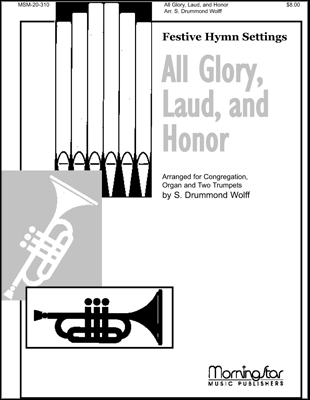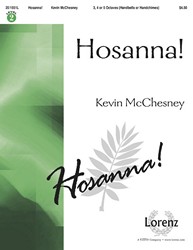- |
User Links
Ah! Lord, how shall I meet Thee

Ah! Lord, how shall I meet Thee
Translator: Catherine Winkworth; Author: Paul Gerhardt (1653)Published in 49 hymnals
Printable scores: PDF, MusicXMLPlayable presentation: Lyrics only, lyrics + musicAudio files: MIDI, Recording
Representative Text
1 O Lord, how shall I meet You,
how welcome You aright?
Your people long to greet You,
my Hope, my heart’s Delight!
O, kindle, Lord most holy,
Your lamp within my breast
to do in spirit lowly
all that may please You best.
2 Love caused Your incarnation;
love brought You down to me.
Your thirst for my salvation
procured my liberty.
O, love beyond all telling,
that led You to embrace
in love, all love excelling,
our lost and fallen race.
3 Rejoice, then, you sad-hearted,
who sit in deepest gloom,
who mourn your joys departed
and tremble at your doom.
Despair not; He is near you,
there, standing at the door,
who best can help and cheer you
and bids you weep no more.
4 Sin's debt, that fearful burden,
let not your soul distress;
your guilt the Lord will pardon
and cover by His grace.
He comes, for men procuring
the peace of sin forgiv'n,
for all God's sons securing
their heritage in heav'n.
5 He comes to judge the nations,
a terror to His foes,
a light of consolations
and blessed hope to those
who love the Lord's appearing.
O glorious Sun, now come,
send forth Your beams most cheering
and guide us safely home.
Source: Psalms and Hymns to the Living God #217
Translator: Catherine Winkworth
 Catherine Winkworth (b. Holborn, London, England, 1827; d. Monnetier, Savoy, France, 1878) is well known for her English translations of German hymns; her translations were polished and yet remained close to the original. Educated initially by her mother, she lived with relatives in Dresden, Germany, in 1845, where she acquired her knowledge of German and interest in German hymnody. After residing near Manchester until 1862, she moved to Clifton, near Bristol. A pioneer in promoting women's rights, Winkworth put much of her energy into the encouragement of higher education for women. She translated a large number of German hymn texts from hymnals owned by a friend, Baron Bunsen. Though often altered, these translations continue to be used i… Go to person page >
Catherine Winkworth (b. Holborn, London, England, 1827; d. Monnetier, Savoy, France, 1878) is well known for her English translations of German hymns; her translations were polished and yet remained close to the original. Educated initially by her mother, she lived with relatives in Dresden, Germany, in 1845, where she acquired her knowledge of German and interest in German hymnody. After residing near Manchester until 1862, she moved to Clifton, near Bristol. A pioneer in promoting women's rights, Winkworth put much of her energy into the encouragement of higher education for women. She translated a large number of German hymn texts from hymnals owned by a friend, Baron Bunsen. Though often altered, these translations continue to be used i… Go to person page >Author: Paul Gerhardt
 Paul Gerhardt (b. Gräfenheinichen, Saxony, Germany, 1607; d. Lubben, Germany, 1676), famous author of Lutheran evangelical hymns, studied theology and hymnody at the University of Wittenberg and then was a tutor in Berlin, where he became friends with Johann Crüger. He served the Lutheran parish of Mittenwalde near Berlin (1651-1657) and the great St. Nicholas' Church in Berlin (1657-1666). Friederich William, the Calvinist elector, had issued an edict that forbade the various Protestant groups to fight each other. Although Gerhardt did not want strife between the churches, he refused to comply with the edict because he thought it opposed the Lutheran "Formula of Concord," which condemned some Calvinist doctrines. Consequently, he was r… Go to person page >
Paul Gerhardt (b. Gräfenheinichen, Saxony, Germany, 1607; d. Lubben, Germany, 1676), famous author of Lutheran evangelical hymns, studied theology and hymnody at the University of Wittenberg and then was a tutor in Berlin, where he became friends with Johann Crüger. He served the Lutheran parish of Mittenwalde near Berlin (1651-1657) and the great St. Nicholas' Church in Berlin (1657-1666). Friederich William, the Calvinist elector, had issued an edict that forbade the various Protestant groups to fight each other. Although Gerhardt did not want strife between the churches, he refused to comply with the edict because he thought it opposed the Lutheran "Formula of Concord," which condemned some Calvinist doctrines. Consequently, he was r… Go to person page >Text Information
| First Line: | Ah! Lord, how shall I meet Thee |
| German Title: | Wie soll ich dich empfangen |
| Author: | Paul Gerhardt (1653) |
| Translator: | Catherine Winkworth |
| Meter: | 7.6.7.6 D |
| Language: | English |
| Copyright: | Public Domain |
- Year A, Ordinary Time, Proper 10 (15)
This is recommended for Year A, Ordinary Time, Proper 10 (15) by 2 hymnal lectionary indexes including Glory to God: the Presbyterian Hymnal #104. - Year B, Ordinary Time, Proper 26 (31)
- Year C, Advent, Second Sunday
Notes
Paul Gerhardt (b. Gräfenhainichen, Saxony, Germany, 1607; d. Lubben, Germany, 1676), famous author of Lutheran evangelical hymns, wrote this German text in ten stanzas, published in Crüger and Runge's Luthers . . . geistliche LiederundPsalmen (1653). The Psalter Hymnal contains three of those ten stanzas.
The original text was inspired by Matthew 21:1-9, the Gospel reading for the first Sunday of Advent in the old Lutheran lectionary. Like so many of the psalms that use the first-person pronoun ("I"), this text moves from the personal welcome of the Savior (st. 1), to a confession of the reason for Christ's incarnation (st. 2), to the church's expectation of Christ's return (st. 3).
The English translation of stanzas 1 and 2 is based on that of Catherine Winkworth (PHH 194) in her Chorale Book for England (1863). Bert Polman (PHH 37) translated stanza 3 for the 1987 Psalter Hymnal.
Gerhardt studied theology and hymnody at the University of Wittenberg and then was a tutor in Berlin, where he became friends with Johann Cruger (PHH 42). He served the Lutheran parish of Mittenwalde near Berlin (1651-1657) and the great St. Nicholas' Church in Berlin (1657-1666). Friederich William, the Calvinist elector, had issued an edict that forbade the various Protestant groups to fight each other. Although Gerhardt did not want strife between the churches, he refused to comply with the edict because he thought it opposed the Lutheran "Formula of Concord," which condemned some Calvinist doctrines. Consequently, he was released from his position in Berlin in 1666. With the support of friends he became archdeacon at Lubben in 1669 and remained there until his death. Gerhardt experienced much suffering in his life; he and his parishioners lived in the era of the Thirty Years' War, and his family experienced incredible tragedy: four of his five children died young, and his wife died after a prolonged illness. In the history of hymnody Gerhardt is considered a transitional figure-he wrote at a time when hymns were changing from a more objective, confessional, and corporate focus to a pietistic, devotional, and personal one. Like other German hymns, Gerhardt's were lengthy and intended for use throughout a service, a group of stanzas at a time. More than 130 of his hymns were published in various editions of Cruger's Praxis Pietatis Melica, the Crüger-Runge Gesangbuch (1653), and
Ebeling's Das andere Dutzeud geistliche Andachtslieder Herrn Paul Gerhardts (1666-1667). John Wesley (PHH 267) and Catherine Winkworth (PHH 194) both made famous English translations of Gerhardt's texts.
Liturgical Use:
Worship services of renewal and penitence during Advent; worship that focuses on Christ's return; Palm Sunday, especially with the alternate tune ST. THEODOLPH (375 and 376).
--Psalter Hymnal Handbook
Tune
ST. THEODULPH (Teschner)Now often named ST. THEODULPH because of its association with this text, the tune is also known, especially in organ literature, as VALET WILL ICH DIR GEBEN. It was composed by Melchior Teschner (b. Fraustadt [now Wschowa, Poland], Silesia, 1584; d. Oberpritschen, near Fraustadt, 1635) for "Valet wi…
WIE SOLL ICH DICH EMPFANGEN
Johann Crüger composed WIE SOLL ICH DICH EMPFANGEN for Gerhardt's text and published the tune in 1653; the tune name is the German incipit of Gerhardt's text. Enhancing a sense of personal and communal meditation, the tune gives reflective support to this text. The tune is in isorhythmic form (all…


 My Starred Hymns
My Starred Hymns






